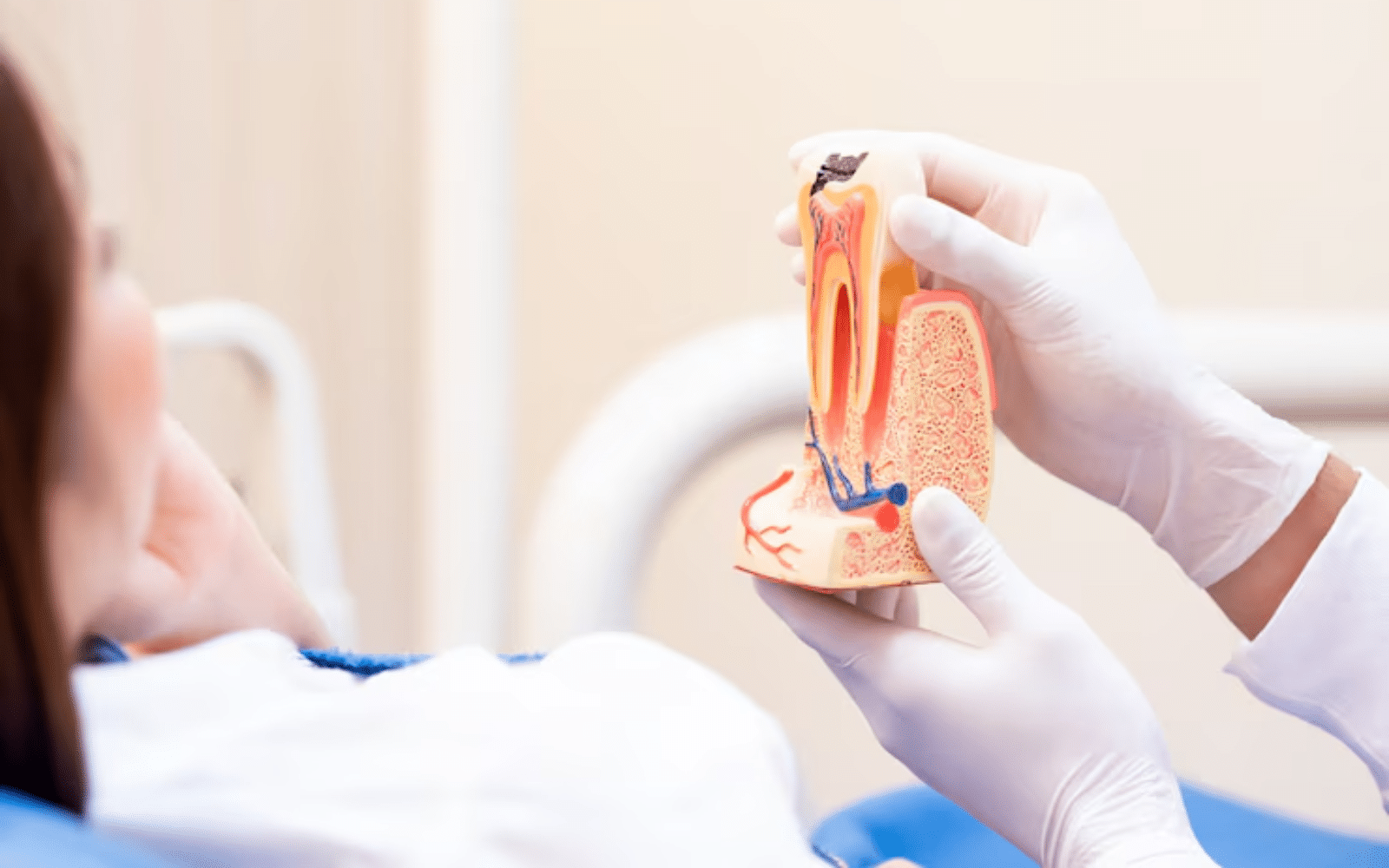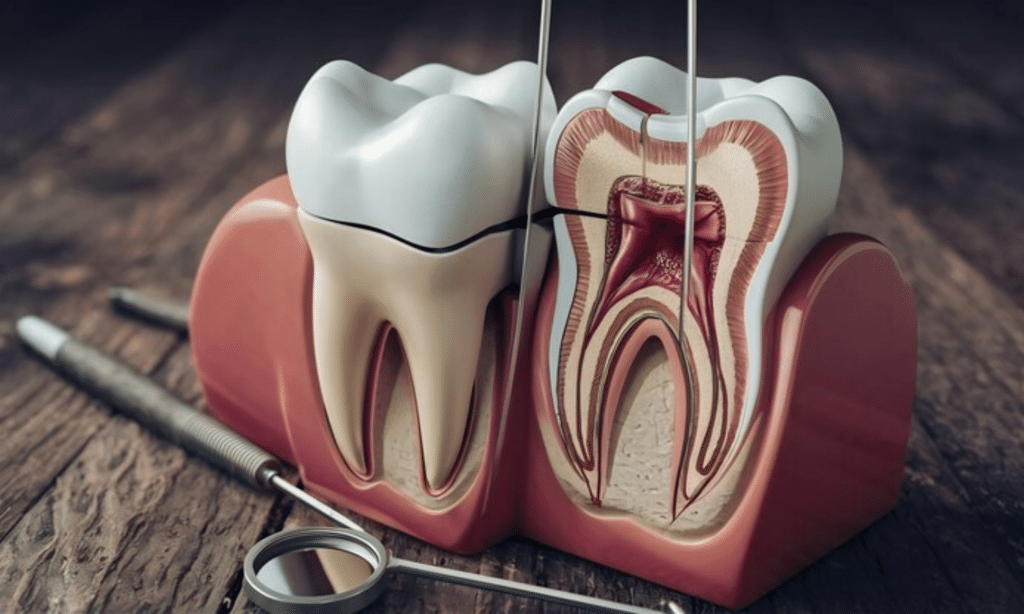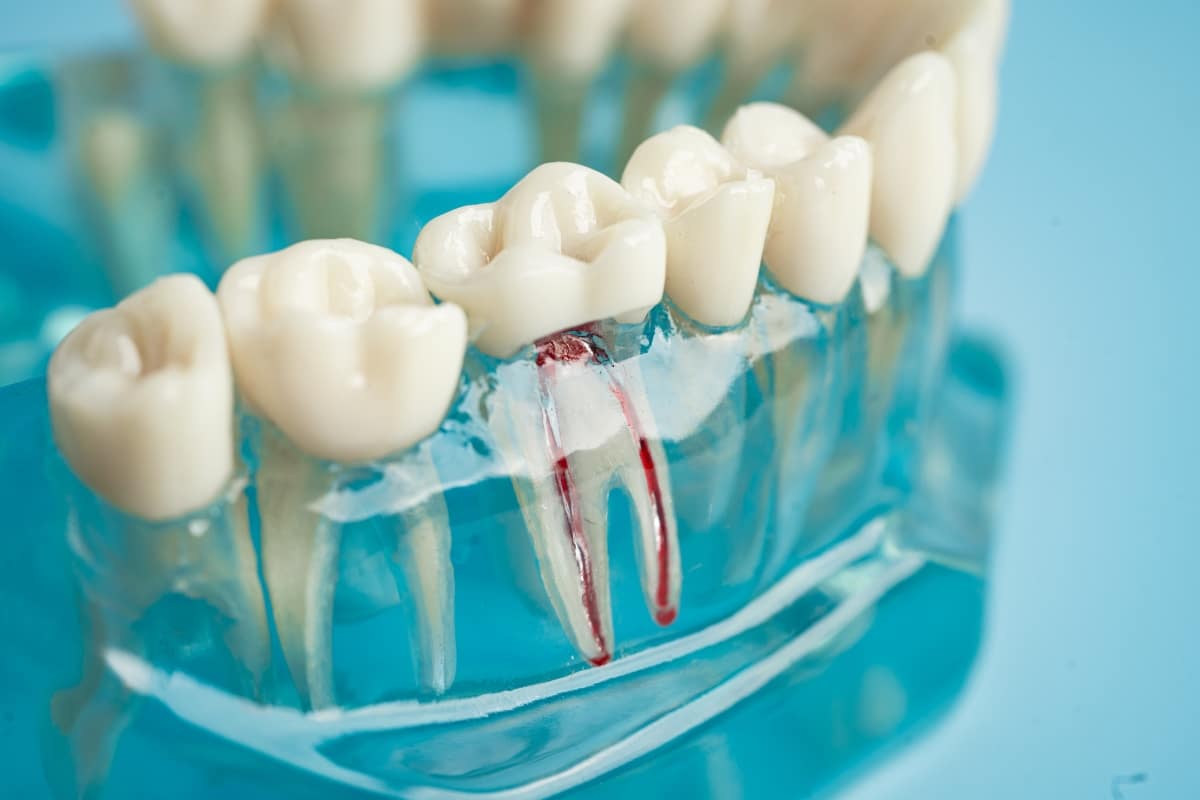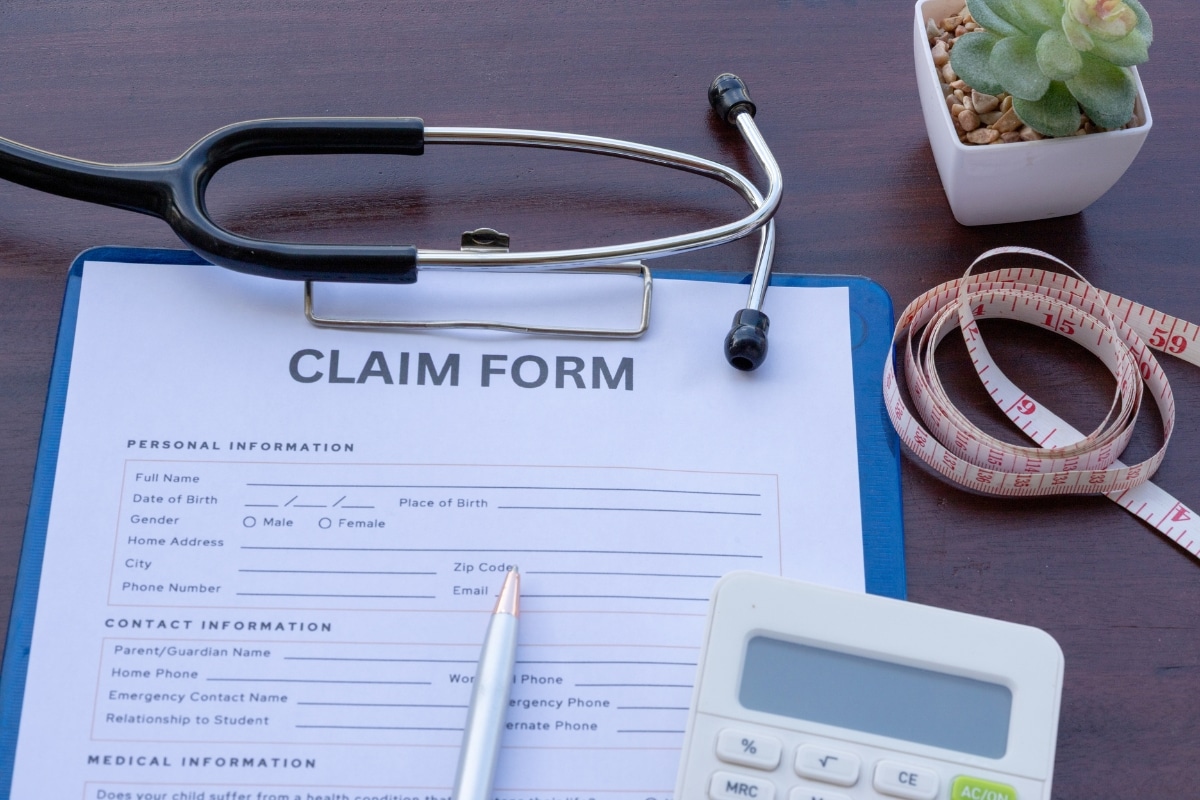Same-day treatments are available.
How Long Does It Take To Recover After A Root Canal Treatment?

Root canal treatment is often viewed with apprehension, primarily due to misconceptions about pain and recovery time. However, with modern dental techniques and advancements, the process and recovery are much smoother than many anticipate. In this blog post, we will explore the recovery process after a root canal treatment, addressing common concerns, what to expect, and tips for a smooth recovery.
Understanding Root Canal Treatment
Before diving into the recovery process, it’s essential to understand what a root canal entails. Root canal treatment is performed to save a tooth that is severely infected or decayed. The procedure involves:
- Diagnosis and Preparation: The dentist takes X-rays to assess the infection’s extent and discusses the procedure with the patient.
- Anesthesia: Local anesthesia is administered to numb the area, ensuring a pain-free experience.
- Pulp Removal: An opening is made in the tooth to access and remove the infected pulp from the pulp chamber and root canals.
- Cleaning and Shaping: The canals are cleaned, disinfected, and shaped to prepare for filling.
- Filling and Sealing: The cleaned canals are filled with a biocompatible material called gutta-percha and sealed.
- Restoration: A temporary filling is placed, and later, a crown is often recommended to restore the tooth’s function and appearance.

Immediate Post-Treatment Experience
Initial Numbness: After the procedure, the local anesthesia will keep the area numb for a few hours. It’s advisable to avoid eating until the numbness wears off to prevent biting your tongue or cheek.
Mild Discomfort: Some mild discomfort or sensitivity is normal once the anesthesia fades. This is due to the body’s natural inflammatory response to the procedure. Over-the-counter pain relievers, such as ibuprofen or acetaminophen, can help manage this discomfort.
Gum Soreness: The area around the treated tooth, including the gums, may feel sore or tender. This soreness typically subsides within a few days.
First 24 Hours After Treatment
Pain Management: Continue to take any prescribed or over-the-counter pain medication as directed. Avoiding hot or cold foods can also help manage sensitivity.
Eating and Drinking: Stick to soft foods and avoid chewing on the treated side. It’s best to avoid hard, crunchy, or sticky foods that could irritate the area.
Rest: Allow your body to rest and recover. Avoid strenuous activities that could exacerbate discomfort.
First Few Days Post-Treatment
Follow-Up Appointment: Your dentist will schedule a follow-up appointment to monitor healing and discuss further restoration options, like placing a permanent crown.
Diet: Gradually reintroduce a regular diet, but continue to avoid chewing on the treated tooth until it is fully restored with a crown.
Oral Hygiene: Maintain good oral hygiene practices, but be gentle around the treated tooth. Brush and floss carefully to keep the area clean and free of food particles.
One Week After Treatment
Decreasing Discomfort: By this time, discomfort and sensitivity should significantly decrease. If pain persists or worsens, contact your dentist, as this could indicate complications.
Permanent Restoration: If not already done, a crown or permanent filling will be placed. This step is crucial for protecting the treated tooth from future damage and restoring its full function.
Long-Term Recovery and Care
Complete Healing: Full recovery and adaptation to the restored tooth can take a few weeks. Most patients resume normal activities within a few days, but complete healing inside the bone and surrounding tissues continues over time.
Oral Hygiene: Continue regular brushing and flossing, paying particular attention to the treated tooth and the entire mouth. Good oral hygiene helps prevent future infections.
Regular Dental Visits: Keep up with regular dental check-ups and cleanings. Your dentist will monitor the treated tooth and overall oral health to catch any potential issues early.
Factors Influencing Recovery Time
Severity of Infection: The more severe the initial infection, the longer the recovery may take. Extensive infections may result in more post-procedure inflammation and discomfort.
Patient’s Health: General health and immune system function play a role in recovery. Individuals with compromised immune systems or underlying health conditions may experience longer recovery times.
Procedure Quality: The skill and experience of the dentist or endodontist performing the root canal can impact recovery. A well-executed procedure minimizes complications and promotes quicker healing.
Patient Compliance: Following post-procedure instructions diligently, including taking prescribed medications and attending follow-up appointments, is crucial for a smooth recovery.
Managing Potential Complications
While root canal treatments are generally successful, complications can arise. Understanding potential issues and how to manage them is important for recovery.
Persistent Pain: If pain persists beyond a few days or worsens, contact your dentist. Persistent pain could indicate an underlying issue that needs addressing, such as remaining infection or a crack in the tooth.
Swelling: Some swelling is normal, but if it increases significantly or is accompanied by fever, it could signal an infection. Contact your dentist immediately in such cases.
Bite Issues: If your bite feels uneven or uncomfortable after the procedure, it may need adjustment. Your dentist can make the necessary corrections to ensure a proper bite.
Tips for a Smooth Recovery
Adhere to Instructions: Follow your dentist’s post-treatment instructions carefully. This includes medication schedules, dietary recommendations, and activity restrictions.
Stay Hydrated: Drink plenty of water to stay hydrated and support the healing process.
Avoid Smoking: Smoking can impair healing and increase the risk of complications. Avoid smoking during the recovery period for the best outcome.
Use Ice Packs: Applying ice packs to the outside of your cheek can help reduce swelling and provide comfort during the initial recovery period.
Maintain Oral Hygiene: Gently brush and floss your teeth, taking care not to irritate the treated area. Keeping your mouth clean aids in the healing process and prevents infections.
Monitor Symptoms: Pay attention to how you feel and monitor any changes. If something doesn’t feel right or if you have concerns, don’t hesitate to contact your dentist.
Root canal treatment is a crucial procedure for saving a damaged or infected tooth, alleviating pain, and restoring oral health. While the thought of the procedure may cause anxiety, the reality is that recovery is typically smooth and manageable with proper care and attention.
Remember, the goal of root canal treatment is to eliminate pain and infection, preserve your natural tooth, and restore your smile. With modern dental practices, root canals are a safe and effective way to achieve these goals, leading to long-term oral health and well-being.
Frequently Asked Questions (FAQs)
Q: How long does the numbness last after a root canal?
A: The numbness from the local anesthesia typically lasts for a few hours after the procedure.
Q: When can I eat normally after a root canal?
A: You can start eating soft foods as soon as the numbness wears off, but avoid chewing on the treated tooth until it’s fully restored with a permanent filling or crown.
Q: Is it normal to feel pain a week after a root canal?
A: Some mild discomfort or sensitivity can persist for a week, but if you experience significant pain, contact your dentist.
Q: How long does it take for the treated tooth to heal completely?
A: While initial discomfort usually subsides within a few days, complete healing of the bone and surrounding tissues can take several weeks to months.
Q: Can I brush my teeth after a root canal?
A: Yes, continue brushing and flossing, but be gentle around the treated tooth.
By staying informed and proactive, you can navigate the recovery process with confidence, ensuring that your root canal treatment results in a healthy, pain-free smile for years to come.

7 Foods and Drinks to Avoid After Professional Teeth Whitening in Cypress

What to Expect After a Root Canal Treatment in Cypress



